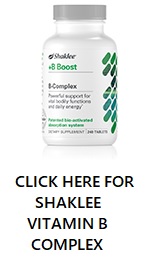Supplements
Best Multivitamin
Shaklee Vitamins Review
Antioxidants
Daily Multivitamin
Fat And Water Soluble Vitamins
Good Daily Multivitamin
Senior Vitamin Needs
Vitamins and the Body
Minerals
Vitamina y Nuestro Cuerpo
Sitemap
 
|
Vitamin B1 is a water-soluble vitamin also known as Thiamin
 Vitamin B1, a water-soluble vitamin also known as Thiamin, is an important part of the rather large family of B-complex vitamins. The primary role of this valuable nutrient is assisting in the conversion of blood sugars into glucose, a fuel for the body's functioning. Vitamin B1, a water-soluble vitamin also known as Thiamin, is an important part of the rather large family of B-complex vitamins. The primary role of this valuable nutrient is assisting in the conversion of blood sugars into glucose, a fuel for the body's functioning.
Additionally, Vitamin B1 also helps the body break down carbohydrates, proteins and fats. It is also very important for proper red blood cell formation, effective neurological function, and DNA synthesis
A regular and proper level of Vitamin B1 helps ensure that our nervous system and cardiovascular system function at peak performance levels. Good muscular function also depends on sufficient quantities of this water soluble vitamin. The production of adenosine triphosphate (ATP), the body's main source of fuel, could not take place without Vitamin B1. That incredibly important organ, the heart, in particular, relies on this fuel supply so that it can keep up with its most important job of circulating blood throughout the body and supplying the blood cells with oxygen.
Of value to those with congestive heart failure
Because of its important role in helping our heart pump blood effectively, Vitamin B1 is believed to quite possibly benefit those individuals who are suffering from congestive heart failure. Vitamin B1 can also be used to ease the numbness and tingling commonly associated with nerve damage.
Due to the manner in which this vitamin helps with energy conversion and the heart's pumping processes, it has been used to boost mood and energy levels and improve alertness.
Thiamine (B1) is also used for various common digestive problems including poor appetite, ulcerative colitis, and ongoing diarrhea.
All water soluble vitamins, such as Thiamine (B1), must be regularly replenished. What the body does not use of a water soluble vitamin is eliminated via the urine. If water soluble vitamins are not replenished regularly, and in adequate amounts, a Thiamine deficiency can result. Fortunately, in the case of Thiamin (B1) deficiencies are quite rare because it is found in so many foods.
Sources of Vitamin B1
There are plenty of natural sources of Vitamin B1. You can easily get it from pork, whole grain cereals, wheat germ, navy beans, kidney beans, garbanzo beans, peas, peanuts, fish, oysters, whole wheat and rye flour, oranges and orange juice and raisins. The absolute best sources are beef liver, kidneys, and brewer's yeast. Of course, one good source of any vitamin is going to be a good daily multivitamin.
Daily B1 Intake Requirements
The jury is still out on the most beneficial daily intake of Vitamin B1 has yet to be made. However, since this vitamin is non-toxic, it probably is very difficult to consume "too much" of it although rare allergic reactions and skin irritation have occurred. Keep in mind, however, it is a water soluble vitamin, and so will be constantly eliminated from the body. Having said that, however, most experts agree that 2.4 mcg each day should be more than sufficient for men and women over age 14 although most recommended doses hover around 1.5 mcg. Children and pregnant and/or lactating women have slightly different requirements.
Symptoms of Vitamin B1 Deficiency
As we age, it is natural for Vitamin B1 levels to begin to decline. Even though there is this "age-associated deficiency", clinical cases of Vitamin B1 deficiency are actually very rare in our modern world. People who regularly consume too much alcohol are probably the most likely to be adversely affected as the alcohol inhibits the body's ability to properly absorb this vitamin.
Babies that are given formula that is lacking, or low in, Vitamin B1 can also be affected adversely.
The best known, and most notable, symptom of a Vitamin B1 deficiency is a condition called Beriberi. Symptoms of Beriberi include rapid heartbeat, mental confusion, nerve trouble and a greadual wasting away of muscles.
Because Vitamin B1 plays a significant role in the effective transmission of nerve signals between the spinal cord and the brain, insufficient amounts of this vitamin can also lead to the development of depression, headaches, nausea, loss of appetite, nerves that tingle and tiredness.
RELEVANT ARTICLE: About Shaklee B-Complex Vitamin Supplement
Vitamina B1 (Tiamina)
Why Diets Don't Work | Sitemap
Vitamin B1 - Thiamine - Copyright 2023 by Donovan Baldwin
Page Updated 10:32 AM Wednesday, March 15, 20232
|



